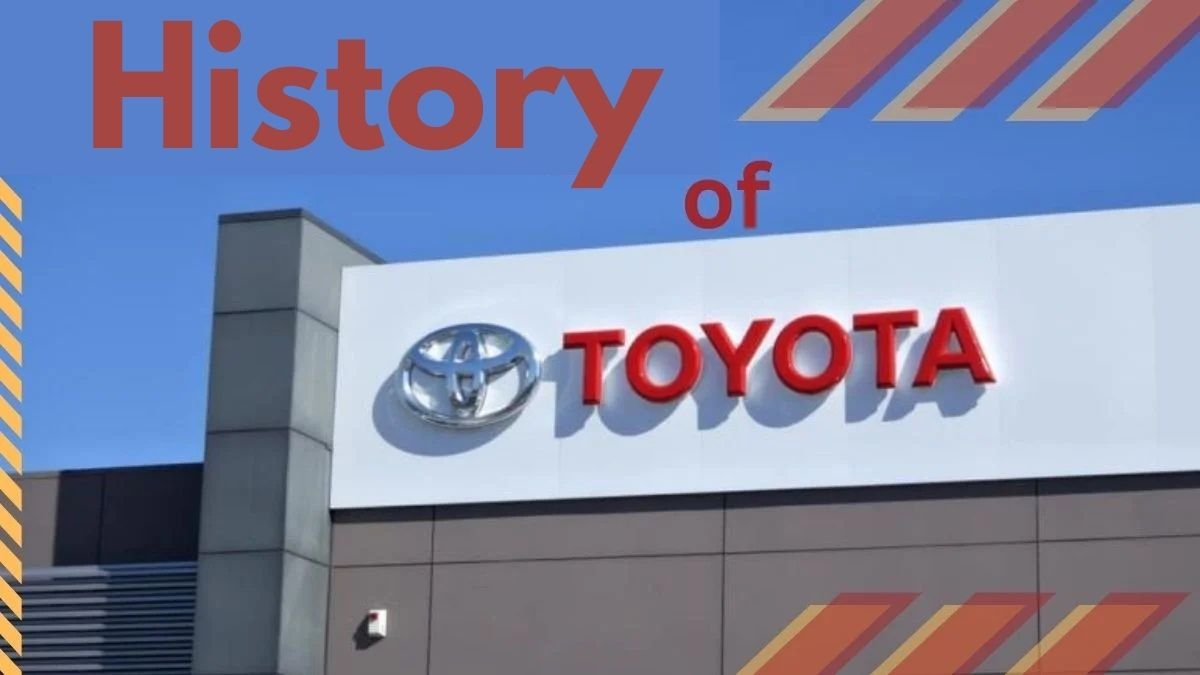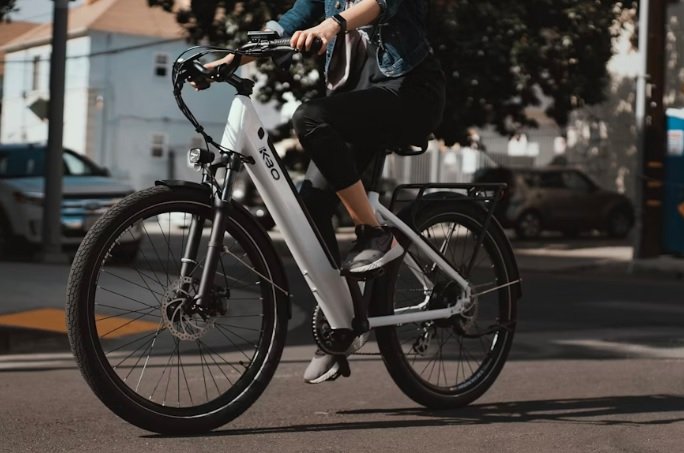Toyota Motor Corporation is the largest and one of the most impactful car manufacturing companies globally. Toyota is a global automobile manufacturing company with its headquarters in Toyota City, Aichi, Japan, it is one of the prominent and most successful automobile companies that has a record of strong, sustainable innovations and growth in the automobile industry.
The Toyota Motor Co., Ltd was established on 28, August 1937 by Kiichiro Toyoda; originally a small automobile division of Toyoda Automatic Loom Works, it is now one of the largest automobile manufacturers in the world. Toyota manufactures slightly more than 10 million vehicles annually. In this article we will discuss all aspects of Toyota.
History Of Toyota
The automotive giant that forms the central image of this paper, was established officially in 1937. This revolutionized invention was helpful in setting a precedent for the Toyoda family’s manufacturing industry know-how. It was when Toyoda sold the patent of the automatic loom in 1929 to Platt Brothers in England to get that amount of capital to step in automobile manufacturing.
Social Setbacks and Recovery after World War II
After the war, they experienced lots of problems. It is important to know that the company faced lots of difficulties after World War II. The plants of the company were located in Japan which suffered a lot of damages during the war and it’s infrastructure facilities were also fully damaged. Toyota’s Koromo Plant was bombed in August 1945 and despite that, Toyota was obliged to begin reconstructing. The occupation forces led by the United States had permitted Japanese automobile manufacturers such as Toyota to manufacture trucks for civil use in their efforts to reconstruct their country. This decision was in fact critical in facilitating the recovery of the company.
1950s to 1970s
After a period of instability in the post war period, they fixed its financial and started to grow in the mid 1950s. New ventures arrived during the Korean War as the U.S army offered a very large purchase order for the various kinds of trucks. At this time Toyota’s executives visited the United States to study Ford’s mode of production that later was incorporated into Toyota’s operations. The result was the creation of the Toyota Production System (TPS), a revolutionary approach to lean manufacturing that focuses on reducing waste and improving efficiency.
1980s to 1990s
The social decade of the 1980s can be looked at as the period of transformations for this company. They acquired Toyota Motor Sales Co., in 1982, and integrated its operations making Toyota a global auto company. It reached organizational heights in the car manufacturing industry by the 1990s. Some of the famous models that were launched in this period are the Toyota Camry, a model that grew to become one of the world’s most popular sedans.
2000s to Present
In the 21st century Toyota company aims at producing electric vehicles (EVs) and engineering vehicles with advanced autopilot systems. The company has therefore focused on product innovation in that it has researched and developed vehicles that are both environmentally and technologically friendly. This company has not relegated sustainable development on the basis of corporate social responsibility, key developmental initiatives include hydrogen fuel cell vehicles for instance the Toyota Mirai.
Top models of Toyota
| S. No | Model | Sales (Thousands of Units) |
| 1 | Corolla | 1,538 |
| 2 | Yaris | 900 |
| 3 | RAV4 | 847 |
| 4 | Hilux | 648 |
| 5 | Camry | 642 |
| 6 | Grand Highlander | 379 |
| 7 | Tacoma | 260 |
| 8 | Levin | 195 |
| 9 | Fortuner | 177 |
| 10 | Avanza | 175 |
| 11 | Innova | 50000 |
All Models of Toyota
Sedans
| Model | Description |
| Avalon | Full-size sedan known for its comfort and advanced features. |
| Camry | Midsize sedan offering a balance of performance and efficiency. |
| Corolla | Compact sedan renowned for its reliability and fuel efficiency. |
| Crown | Premium sedan with a focus on luxury and advanced technology. |
| Mark X | Midsize sedan offering a blend of performance and luxury. |
| Prius | Hybrid sedan emphasizing fuel efficiency and eco-friendliness. |
| Sienna | Midsize minivan designed for family comfort and versatility. |
| Yaris | Subcompact sedan ideal for urban commuting and maneuverability. |
SUVs and Crossovers
| Model | Description |
| C-HR | Subcompact crossover with a stylish design and compact footprint. |
| Corolla Cross | Compact SUV combining the practicality of an SUV with the efficiency of a sedan. |
| Fortuner | Midsize SUV known for its ruggedness and off-road capabilities. |
| Harrier | Midsize SUV offering a premium interior and smooth ride. |
| Highlander | Midsize SUV with three-row seating and family-friendly features. |
| Land Cruiser | Full-size SUV renowned for its durability and off-road prowess. |
| RAV4 | Compact SUV offering a blend of performance, efficiency, and versatility. |
| Sequoia | Full-size SUV with ample space and towing capacity. |
| Urban Cruiser | Subcompact SUV designed for urban environments with efficient performance. |
| Fj Cruiser | Retro design model, Available in V6 engine, 4 liter, with small wheel base. |
Trucks
| Model | Description |
| Hilux | Midsize pickup truck known for its durability and off-road capabilities. |
| Tacoma | Midsize pickup offering a balance of performance and utility. |
| Tundra | Full-size pickup truck with robust towing capacity and powerful engines. |
Hybrids and Electric Vehicles
| Model | Description |
| Prius | Hybrid sedan emphasizing fuel efficiency and eco-friendliness. |
| Prius Prime | Plug-in hybrid offering electric-only driving range and hybrid efficiency. |
| RAV4 Prime | Plug-in hybrid SUV combining electric driving with SUV versatility. |
| Mirai | Hydrogen fuel cell vehicle focusing on zero-emission driving. |
Diverse Range of Toyota Vehicles
SUVs and Crossovers
Everyone is certain to find what they are looking for With Toyota range of SUVs and Crossovers. Starting with the subcompact segment, there are the Yaris Cross and C-HR, the compact segment has Corolla Cross and RAV4 hybrid vehicles. Going up, the midsize revised Harrier/Venza and Kluger/Highlander models add even more space and additional features.
Pickup Trucks
It started its entry into the pickup truck segment in 1947 and has been selling trucks up to now. Hilux and Tacoma trucks are among the favorite cars around the world as they are strong and reliable cars. The Hilux model started way back in 1968, and over the years it has become one of the most renowned pickup trucks, is part of this company lineup currently available in models which include; 2WD as well as 4WD, and is realized in different engines such as gasoline and diesel.
Luxury Vehicles
Lexus is Toyota’s luxury car division while itself has its flagship car in the company Crown and Lexus Century ‘stretch’ limousine. Later in the 1980s, It had wanted to broaden the luxury car range in a bid to rival European car makers and new entrant Japanese brands. Toyota’s lexus luxury division car –
- Lexus GX 550
- Lexus NX
- Lexus LS
- Lexus RX
- Lexus LC 500h
Hybrid and Hydrogen Fuel Cell Vehicles
Being a leading automaker, This company invented hybrid technology and introduced the market’s first hybrid car – the Toyota Prius in 1997. The company has remained at the forefront of the hybrid electric pipeline with over 15 million set units sold worldwide by early 2020. Hybrid Synergy Drive system has now been adopted across cars ranging from the Camry to more upscale Lexus vehicles.
Electric Vehicles (EVs)
While the car maker was for a long time slow in taking up battery electric vehicles, in the last few years it has been increasing the production. Presenting the new It bZ4X, an all-electric vehicle that will serve as the carmaker’s platform for the development of its new generation of EVs. Before, This was not enthusiastic about EVs but the firm has set higher targets and aims to manufacture 3.5 million electric cars per annum by the decade’s end.
Non-Automotive Ventures
Apart from the automobile industry, it has invested in many other sectors. It owns a minority stake in Mitsubishi Aircraft Corporation and has been involved in the stream of regional jets. Furthermore, this company has entered into the enclosed pleasure boat market with the “Toyota Ponam” brand, jointly with Yamaha Marine.
Top 10 Toyota and Lexus Vehicle Sales by Country
| S. No. | Location | Vehicle Sales |
| 1 | United States | 2,248,477 |
| 2 | China | 1,907,587 |
| 3 | Japan | 1,672,970 |
| 4 | GCC | 448,799 |
| 5 | Indonesia | 327,675 |
| 6 | Thailand | 265,949 |
| 7 | Australia | 230,439 |
| 8 | Canada | 227,460 |
| 9 | India | 222,069 |
| 10 | Philippines | 200,031 |
Challenges Faced by Toyota
They had gone through some very serious challenging struggles in its global operations in its history.
- Economic Crises: Similar to most other international organizations, this company has also been subject to the forces of global recession. For instance, the intensified effect of the 2008 global financial crisis affected this automotive industry most, including Toyota.
- Recalls and Quality Control Issues: So far, It has been associated with several other large-scale recall exercises. During the financial year 2009-2010 automobile giant had to recall millions of its cars over perceived risks associated with uncontrolled acceleration and other safety concerns.
- Competition from Other Automakers: Competition pressures loom large on Toyota’s operations and it has to continuously battle rivals from other auto manufacturers from America and Europe as well as developing new industry players such as EV makers.
- Environmental and Regulatory Challenge: Due to the ever rising awareness of the people towards the usage of eco-friendly products. It feels the pressure of global warming by employing high carbon-emitting vehicles.
Conclusion
In 2023, Japan led the production of Toyota and Lexus vehicles with over 3.37 million units, followed by China and the United States, which also showed significant production figures. Other countries, such as Thailand, Canada, and India, contribute substantially to Toyota’s global manufacturing network. This company continues to maintain a strong presence worldwide, with diverse operations across different continents, ensuring that their vehicles meet global demand.
FAQs
Ans. They had nine production facilities across Europe, including in countries like the UK, France, and Poland.
Ans. Japan produced the most vehicles, with a total of 3,370,752 units in 2023.
Ans. The United States produced 1,229,516 Toyota and Lexus vehicles in 2023.
Ans. Brazil ranked 10th, with a production of 212,389 vehicles.
Ans. Yes, it operates a joint venture plant with Citroën and Peugeot in Valenciennes, France.
Also, read about
- Unveiling Toyota’s Electric Pickup Truck: A Game-Changer in the EV Revolution
- Supra Price in India: Detailed Overview of Features, Specifications, and More
- Toyota Rumion | Affordable 7-Seater MPV for Families | Specs & Features
- Legendary Toyota Supra Mk4 Price in India, Specification, Features, and More
Refresh Date: August 21, 2025



